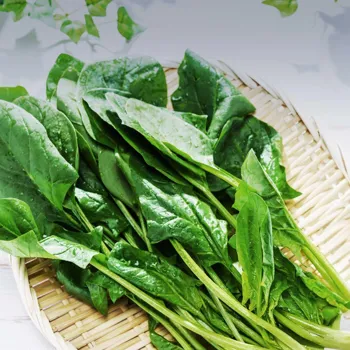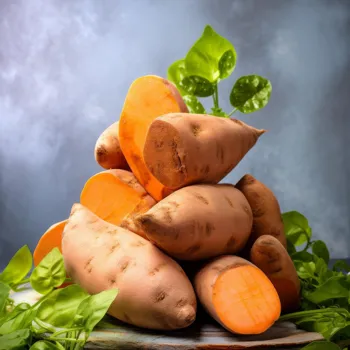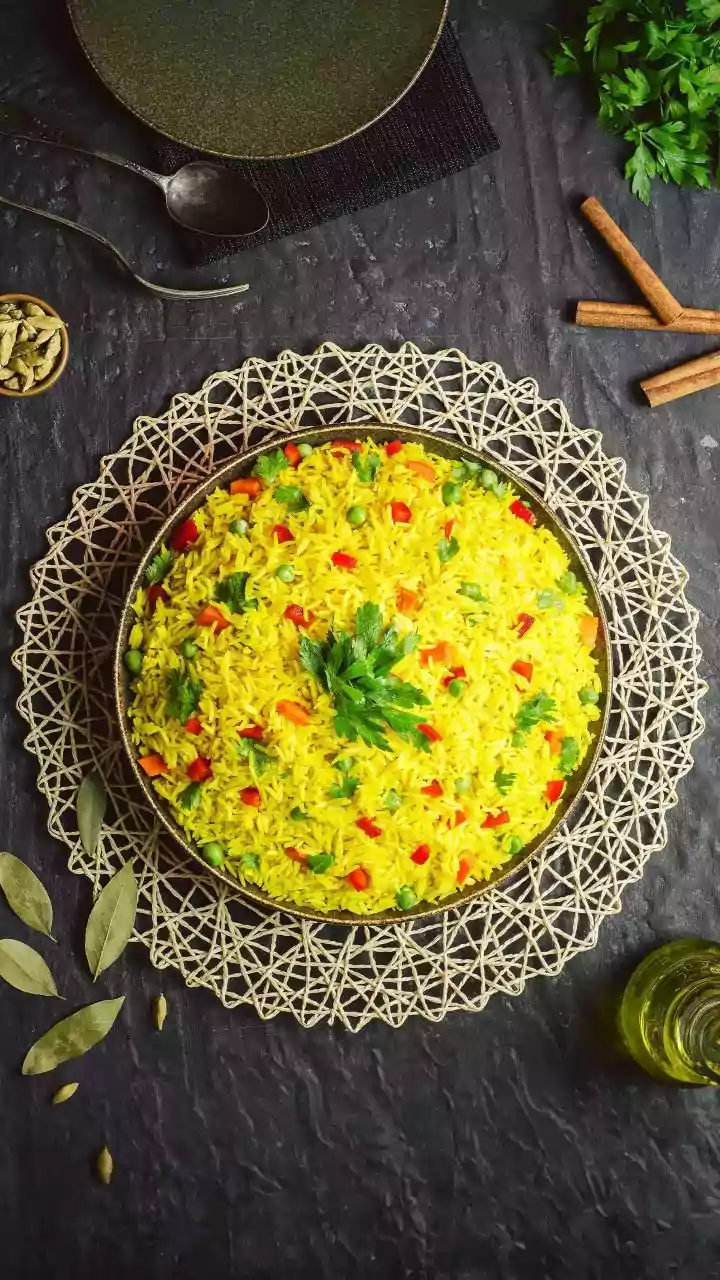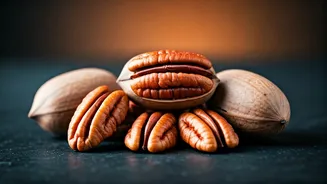Unlock the secrets to better health with our guide on India's top nutritional deficiencies and how to combat them. Dive in!
Namaste, folks! Are you feeling a bit tired, down in the dumps, or just not yourself
lately? It might not be just the office workload or the crazy traffic. More often than not, it's our diet, or rather, what's missing from it, that's playing spoilsport.
India, with its vibrant culture and diverse cuisine, also faces a hidden battle: widespread nutritional deficiencies. Fear not! This article is your friendly guide to understanding the 10 most common nutritional deficiencies in India and simple, desi ways to combat them.
Let's get healthy, the Indian way!
Iron Deficiency: The Energy Drainer
Iron deficiency, the main culprit behind anaemia, is a common foe, especially amongst women and children. Symptoms like fatigue, weakness, pale skin, and breathlessness can really hamper your daily activities. But don't worry! Increasing your iron intake is easier than you think.
Load up on iron-rich foods like spinach (palak), fenugreek leaves (methi), dates (khajur), raisins (kishmish), pumpkin seeds, and fortified cereals. Pair these with vitamin C-rich foods like amla, guava, oranges, and lemons. Vitamin C helps in the absorption of iron.
Avoid drinking tea or coffee immediately after meals, as they can hinder iron absorption. If you suspect you have an iron deficiency, consult your doctor for appropriate testing and supplementation, if needed.
Remember, a little iron goes a long way in boosting your energy levels and overall well-being!
Vitamin D Deficiency: Sunshine Savior
Vitamin D, often called the "sunshine vitamin", plays a crucial role in calcium absorption, bone health, and immune function. Unfortunately, a large chunk of the Indian population suffers from vitamin D deficiency due to limited sun exposure, especially with our busy lifestyles and pollution levels.

Symptoms include bone pain, muscle weakness, fatigue, and increased susceptibility to infections. Spend at least 15-20 minutes in the early morning sunlight (before 10 am) or late afternoon sunlight (after 4 pm) daily.
Incorporate vitamin D-rich foods like fortified milk and dairy products, mushrooms, and fatty fish (if you consume them). If sun exposure and dietary changes aren't enough, consult your doctor about vitamin D supplementation. Strong bones and a robust immune system are just a dose of sunshine away!
Vitamin B12 Deficiency: The Nerve Nourisher
Vitamin B12 is essential for nerve function, red blood cell production, and DNA synthesis. Deficiency can lead to fatigue, weakness, tingling sensations in hands and feet, memory problems, and even neurological issues.
Vitamin B12 is primarily found in animal products, making vegetarians and vegans more susceptible to deficiency. Luckily, there are several vegetarian options available. Include fortified cereals, nutritional yeast, and fortified plant-based milk alternatives in your diet.
If you are a vegetarian or vegan, consider taking a vitamin B12 supplement after consulting with your doctor. Keeping your nerves healthy and your mind sharp is crucial for a happy and productive life!
Calcium Deficiency: Bone Builder
Calcium is the cornerstone of strong bones and teeth. It also plays a vital role in muscle function, nerve transmission, and blood clotting. Insufficient calcium intake can lead to weakened bones (osteoporosis), muscle cramps, and increased risk of fractures.

Dairy products like milk, yogurt, and cheese are excellent sources of calcium.
If you're lactose intolerant or prefer plant-based options, include calcium-rich foods like ragi (finger millet), sesame seeds (til), almonds, green leafy vegetables (like spinach and collard greens), and fortified plant-based milk alternatives in your diet.
Regular weight-bearing exercises like walking, jogging, and dancing also help in building bone density. Don't let your bones become brittle - invest in your calcium intake today!
Iodine Deficiency: Thyroid Tamer
Iodine is essential for the proper functioning of the thyroid gland, which regulates metabolism. Iodine deficiency can lead to thyroid disorders like goiter (enlargement of the thyroid gland) and hypothyroidism (underactive thyroid).
The simplest way to combat iodine deficiency is to use iodized salt in your cooking. Avoid using rock salt without checking if it is iodized. Include iodine-rich foods like seaweed, dairy products, and eggs (if you consume them) in your diet.
Pregnant women and breastfeeding mothers have higher iodine requirements, so they should pay special attention to their iodine intake. A healthy thyroid equals a healthy metabolism!
Folate Deficiency: The Cell Guardian
Folate, also known as vitamin B9, is crucial for cell growth and development, especially during pregnancy. Folate deficiency can lead to anaemia, birth defects (in pregnant women), and increased risk of certain cancers.
Load up on folate-rich foods like green leafy vegetables (spinach, lettuce, broccoli), lentils, chickpeas, beans, fortified cereals, and citrus fruits. Cooking can destroy folate, so try to eat some of these foods raw or lightly steamed.
Pregnant women or women planning to conceive should take folic acid supplements as recommended by their doctor. Folate is your cell's best friend!
Vitamin A Deficiency: The Vision Protector
Vitamin A is essential for good vision, immune function, and skin health. Deficiency can lead to night blindness, dry eyes, weakened immune system, and skin problems. Include vitamin A-rich foods like carrots, sweet potatoes, pumpkin, mangoes, and papaya in your diet.

Green leafy vegetables also contain beta-carotene, which the body converts to vitamin A. Vitamin A supplements should only be taken under the guidance of a doctor, as excessive intake can be harmful. Keep your eyes bright and your immune system strong with Vitamin A!
Vitamin C Deficiency: The Immunity Booster
Vitamin C is a powerful antioxidant that boosts the immune system, protects against cell damage, and helps in collagen production (for healthy skin and joints). Deficiency can lead to scurvy (rare but serious), fatigue, weakened immune system, and slow wound healing.

Citrus fruits like oranges, lemons, and grapefruits are excellent sources of vitamin C. Other good sources include amla, guava, strawberries, broccoli, and bell peppers. Vitamin C is water-soluble, so it's best to consume it regularly throughout the day.
A daily dose of vitamin C will keep the bugs away and your skin glowing!
Zinc Deficiency: The Growth Promoter
Zinc is essential for growth, immune function, wound healing, and sense of taste and smell. Deficiency can lead to stunted growth in children, weakened immune system, hair loss, and skin problems. Include zinc-rich foods like nuts, seeds, whole grains, lentils, and chickpeas in your diet.
Soaking nuts and seeds before consumption can improve zinc absorption. Zinc supplements should only be taken under the guidance of a doctor. A little zinc goes a long way in keeping you healthy and strong!
Protein Deficiency: The Building Block Blocker
Protein is the building block of our bodies. It is essential for muscle growth and repair, enzyme production, and immune function. Deficiency can lead to muscle loss, fatigue, weakened immune system, and stunted growth in children.
Include protein rich foods like lentils, chickpeas, kidney beans, tofu, soya products, nuts, seeds, and quinoa in your diet. Make sure you consume adequate protein in every meal. This helps the body to maintain muscle mass and overall health.
The Bottom Line: Balance is Key!
Remember, folks, a balanced diet is the foundation of good health. Focus on consuming a variety of nutrient-rich foods from all food groups. Don't rely solely on supplements; they should only be used to complement a healthy diet and under the guidance of a healthcare professional.
If you suspect you have any nutritional deficiencies, consult your doctor or a registered dietitian for personalized advice. Stay healthy, stay happy, and stay bindaas!
AI Generated Content. Glance/InMobi shall have no liability for the content


















